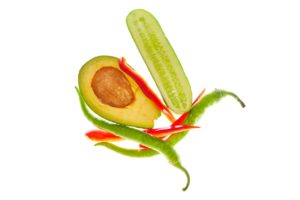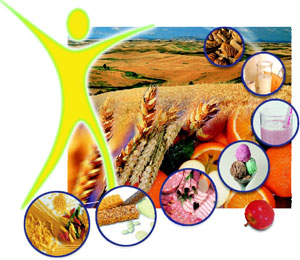All You Need To Know About Soluble and Insoluble Fiber
We all know that insoluble and soluble fiber is essential to our bodies needs. Let’s explore why.
What is Dietary Fiber?
Generally speaking, dietary fiber is a type of indigestible carbohydrate found in plants. Fiber plays several roles in the body, including keeping your intestines clean and preventing diseases of the GI tract, from constipation to cancer.
Soluble vs. Insoluble Fiber
There are 2 types of fiber insoluble and soluble fiber.
They act in different ways, and both offer a range of health benefits.
Many foods contain a proportion of soluble and insoluble fiber but favor one over the other.

Insoluble Fiber
This is often termed metabolically inert as it does not break down in the gut. It doesn’t dissolve in water or get absorbed into the bloodstream. It does, however, attract fluid to it and helps make stools soft and easier to pass, reducing the risk of constipation. Insoluble fiber provides important fuel for the microbiome and may help stabilize blood sugars.
Another term used to describe insoluble fiber is roughage.
Soluble Fiber
As its name suggests, Soluble Fiber is the fiber that breaks down in the water in the GI Tract. As it pulls water in, it swells and produces a gel-like substance that slows down digestion, including carbohydrate absorption rate, into the bloodstream. This will reduce the risk of blood sugar spikes after eating.
Health Benefits of Soluble and Insoluble Fiber
As a rule, soluble fiber acts by changing the nature of the contents of the digestive system, opening it up for fermentation. As the fiber absorbs water in the gastrointestinal tract, it provides the perfect environment for the initiation of fermentation.
Many of the health benefits of having adequate daily dosages of soluble fiber are directly linked to this ability to initiate fermentation in the intestines. As fermentation proceeds, short-chain fatty acids are produced. Short-chain fatty acids are known to have immense health benefits, the first of which is their role in reducing the risk of cardiovascular disease. Stabilizing blood glucose levels and reducing Low-Density Lipoproteins, also known as bad cholesterol, promotes cardiovascular health

Soluble fiber can be beneficial if you suffer from diarrhea as it adds bulk to the stool.
Irritable Bowel Syndrome or IBS
Soluble fiber foods are tremendously helpful in reducing symptoms of Irritable Bowel Syndrome or IBS. IBS is a condition characterized by abdominal pain, bloating, alternating constipation, and diarrhea. IBS often has no organic cause, so the treatment is focused on the diet of the patient. When fiber is introduced into the diet, there can be great benefits, especially with alternating diarrhea and constipation. Soluble fiber may also help relieve other IBS symptoms, including headaches, back pains, and fatigue. Other benefits include regulating blood glucose, improved absorption of nutrients, weight loss, and protection against diseases such as cancer.
But beyond that, there are other benefits to consuming this soluble fiber. It promotes the formation of immune cells, improving overall resistance against different diseases. Also, it promotes colon health by encouraging the proliferation of healthy bacteria, maintaining a healthy PH.

Large numbers of healthy bacteria help with the absorption of nutrients and improved immunity and longevity.
Having the correct colon PH reduces the risk of inflammation and the formation of polyps in the intestine.
In contrast, while insoluble fiber also absorbs water while traveling along the gastrointestinal tract, the process results in the creation of bulk, initiating defecation.
Insoluble fiber can increase the regularity of bowel motions and therefore is a great way to reduce the risk of constipation.
Insoluble fiber is also fermented by colonic bacteria, maybe not to the degree of soluble fiber but still contributing to the overall health of the digestive tract.
Food Sources of Fiber
Now that you know about the benefits of fiber, which foods are a good source of soluble and insoluble fiber?
Plant foods contain soluble or insoluble forms of this fiber or both.
But if you don’t have any access to any of these foods, soluble fiber capsules are sold at your local drug store.
Excellent Food Sources of Soluble Fiber
- Oats and oat bran
- Barley
- Rye
- Beans
- Potatoes, carrots, pumpkin
- Rice bran
- Fruit -apples, bananas, and berries
- Legumes
Great Food Sources of Insoluble Fiber
- Wheat bran
- Cereals
- Wholegrains
- Oat Fiber
- Celery,
- Cucumbers
- Pumpkin
You will notice some foods contain both soluble and insoluble fiber.
If your diet does not contain enough fiber, you may want to consider taking a fiber supplement such as psyllium husk, which includes both soluble and insoluble fiber.
Although it may seem there are more benefits associated with soluble fiber intake, it is important to realize both soluble and insoluble fiber are essential for bowel health and overall health and wellbeing. They work together synergistically, creating a healthy and diverse GI Tract environment.
No related posts.
